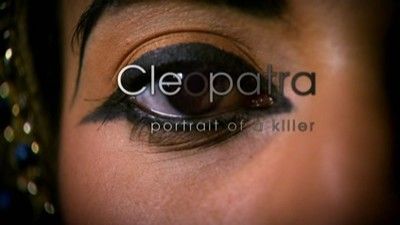The BEST episodes directed by Paul Elston

#1 - Cleopatra: Portrait of a Killer
BBC Documentaries - Season 2009 - Episode 6
Cleopatra - the most famous woman in history. We know her as a great queen, a beautiful lover and a political schemer. For 2,000 years almost all evidence of her has disappeared - until now. In one of the world's most exciting finds, archaeologists believe they have discovered the skeleton of her sister, murdered by Cleopatra and Mark Antony. From Egypt to Turkey, Neil Oliver investigates the story of a ruthless queen who would kill her own siblings for power. This is the portrait of a killer.
#2 - The Other Pompeii: Life and Death In Herculaneum
BBC Documentaries - Season 2013 - Episode 61
Professor Andrew Wallace-Hadrill presents a documentary following the scientific investigation that aims to lift the lid on what life was like in the small Roman town of Herculaneum, moments before it was destroyed by a volcanic erruption. Just 10 miles from Pompeii, 12 arched vaults are telling a whole new story about what life was like before the eruption of Mount Vesuvius. They contain the skeletons of no less than 340 people, just 10% of the local population, killed by the volcano. Amongst them are the first new skeletons to be found in the area for 30 years which are now the subject of a ground-breaking scientific investigation. The finds included a toddler clutching his pet dog, a two-year-old girl with silver earrings and a boy staring into the eyes of his mother as they embraced in their last moment. Those found inside the vaults were nearly all women and children. Those found outside on the shoreline were nearly all men. Why? The Other Pompeii: Life and Death In Herculaneum unravels a surprising story of resilience, courage and humanity, with the local population going to their deaths not in the apocalyptic orgy of sex and self-destruction often portrayed in Pompeii's popular myth, but, much more like the passengers of the Titanic, it seems that like their British counterparts, the ancient inhabitants of Herculaneum put women and children first. Presenting the film is Britain's greatest Pompeianist, Professor Andrew Wallace-Hadrill of the University of Cambridge, and Director of the Herculaneum Conservation Project. He takes us to meet the scientists leading the forensic project - Luca Bondioli and Luciano Fattore - and then on a tour of the incredible town where the skeletons once lived. On this journey he uncovers their houses, their wooden furniture (including their beds and the only surviving baby's cradle from the Roman world), their food and even their waste (that's human waste), perfectly preserved by a layer of ash up to five times deepe